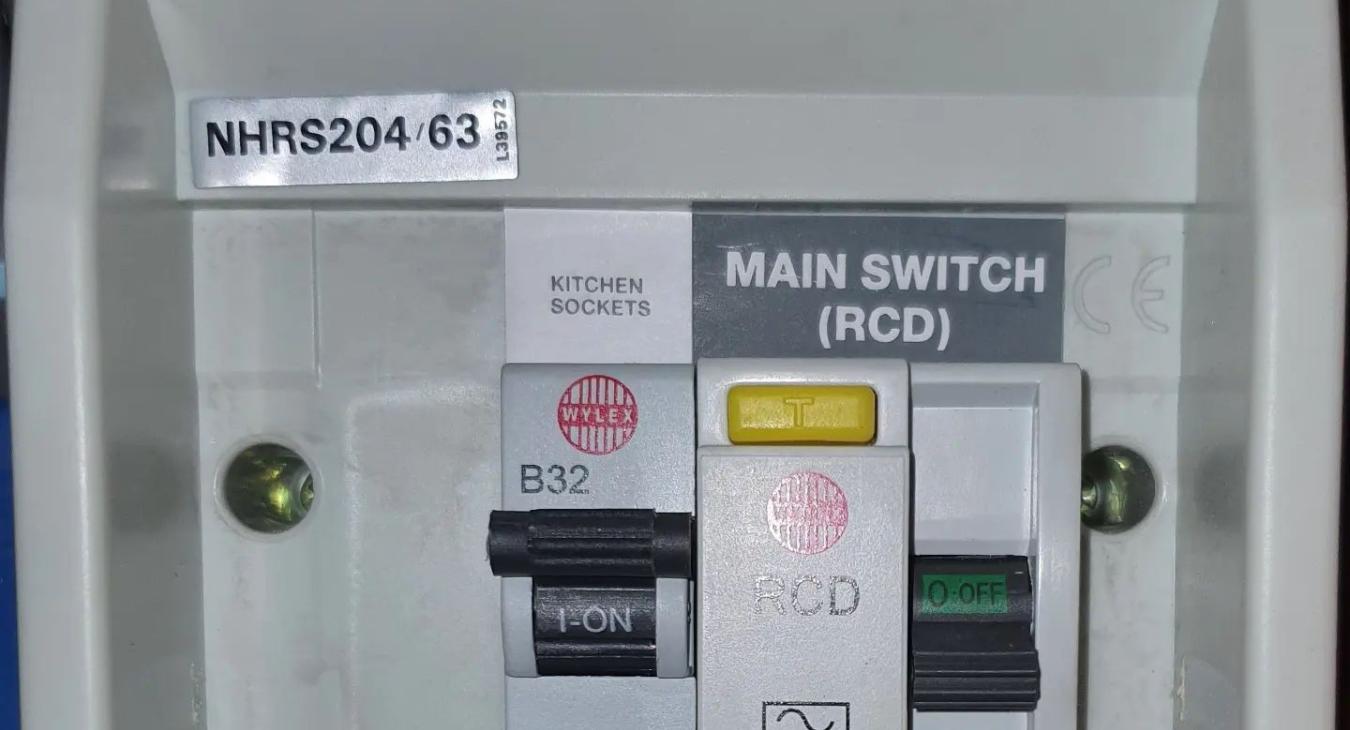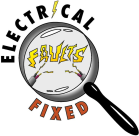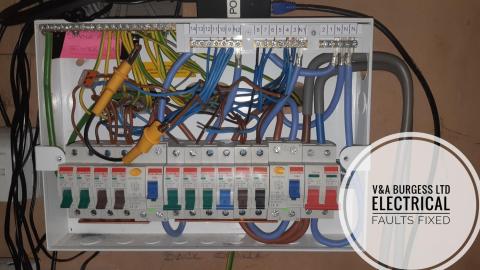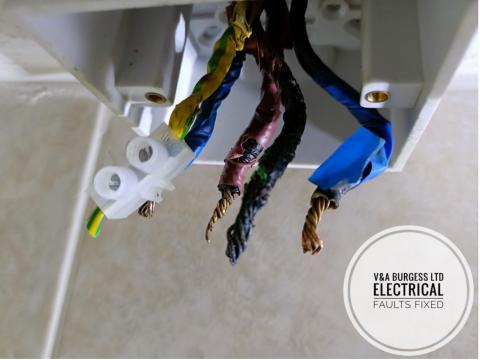
Table of Contents
- Due to recent legislative changes regarding safety RCD protection, many Warrington homeowners are now finding they need to upgrade their RCD to meet these regulations.
- What is an RCD?🤔
- What is wrong with the AC type RCD?
- Do I need to have my RCDs replaced?
- What kind of electrical work will mean 'upgrades'?
1) Due to recent legislative changes regarding safety RCD protection, many Warrington homeowners are now finding they need to upgrade their RCD to meet these regulations.
If you are an electrician then it is all well and good, if not then these changes are likely to mean very little and appear somewhat confusing. As your local electrician in Warrington, V&A Burgess Ltd, Electrical Faults Fixed we can explain these changes to you along with the purpose of an RCD and why it's needed to improve safety.
Back to top2) What is an RCD?🤔
An RCD is a safety device that usually sits in the consumer unit in your home. It stands for Residual Current Device and its primary purpose is to protect you and those around you from electric shocks. An RCD acts to stop the flow of electricity when it senses that there is some electrical current missing, it makes the assumption that any current missing from electrical circuits is passing through a human body and giving someone a shock. An RCD can perform its job in as little as 40 milliseconds which is incredibly quick, it continuously monitors the circuits which it protects and if there is an issue across any of them it will disconnect the power to those circuits. There are different types of RCDs available and the most common type found in consumer units in Warrington and surrounding areas is the AC type RCD. This is signified by a small up and down wave diagram in a box on the front of the RCD. It is usually tiny in size.
We can see the rating of the RCD is 0.03 Amps (or 30 milli amps) then the little box tells us it is an AC type RCD.
Back to top3) What is wrong with the AC type RCD?
Type AC RCD devices were installed as the past industry standard and were installed in homes across the UK as the norm. When this done, the equipment in our homes only really exposed the RCD to AC type fault currents and the devices were only ever equipped to handle issues on circuits that used AC equipment. We now have homes filled with new technology and much of our equipment and many of our appliances now use DC current as they contain lots of electronic circuitry requiring DC current. As a result, the old type AC RCD devices are not equipped to handle faults when there is DC present and can be blinded by this in many cases. This means that the electric shock protection device (RCD) could be rendered inactive in the event of a fault leaving you and those around you at risk of electric shock! The requirement for new installations, new consumer units and any electrical work requiring circuit modification is for A type RCD devices to be installed. The regulations are very clear that we should be considering which type of RCD should be installed in electrical installations in order to uphold safety standards. These A type RCDs can handle issue with AC faults and DC faults and are the latest protection to keep you and your family safe.
Back to top4) Do I need to have my RCDs replaced?
If your property is between Liverpool and Leigh, we can certainly advise you if your RCD protection needs changing. We do not charge for advice and if you are prepared to send a photo over to us via email info@electricalfaultsfixed.co.uk or via WhatsApp to 07858 136 955 then we can definitely help. We can tell you within minutes if you should have your devices changed. In fact, if you have any concerns over anything in your electrical installation that you think we could help with, we are happy to receive pictures of the problems and offer you free advice. If you are thinking of having extra sockets added, extra lights fitted or other electrical works carried out then it is highly likely that your electrical system will need to be upgraded in some way to meet current standards before the work can be carried out. This is for your safety and of those around you. If you are unsure whether your planned electrical work will require your system to be upgraded, changed or modified then please contact us and we will do our best to help.
Back to top5) What kind of electrical work will mean 'upgrades'?
This very much depends on the age of the existing electrical installation and the type of work being carried out. For example, adding additional electrical circuits into a new build home is likely to require little upgrading of the existing system and therefore less cost than adding the same electrical circuits into a 50-year-old home that has had no maintenance or upgrading to the original electrical system. Swapping light switches and plug sockets is not likely to require upgrading although if moving from plastic to metal, the earthing will need to be carefully checked by your electrician to ensure that there is no danger of the metal parts becoming live. Swapping light fittings over for different ones will generally not require upgrade works assuming the earthing is sufficient.
A qualified and trustworthy electrician will be able to advise you of any changes that need to be made prior to your electrical installation being altered and provide a quote for any works required. Whilst it may be tempting to avoid compliance with modern safety standards perhaps and go with a cheap quote and no paperwork, it is potentially dangerous to do so and this could leave you in a situation where your electrical system is hazardous and possible invalidation of any home insurance should the electrical changes not meet the regulations. No reputable electrician would deliberately circumvent the regulations and chance your safety. We are qualified, experienced, insured, and registered NICEIC electricians and we take great pride in our work and customer service. If you require our services, advice or help then do not hesitate to get in touch.
📧 Enquire online
💻 Visit our website
Back to top










